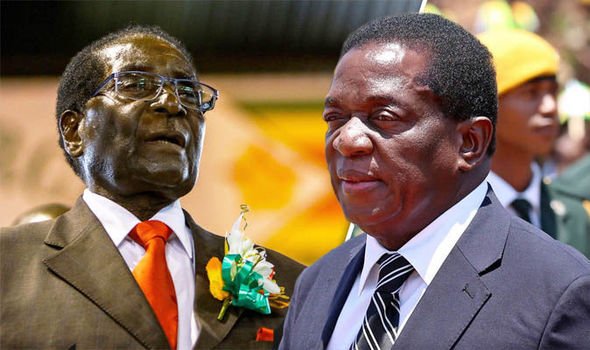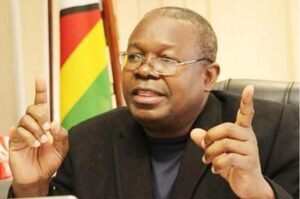- Featured
- No Comment
Mnangagwa’s presidency of Zimbabwe falls short of low bar set by Mugabe

By Joseph Cotterill in Johannesburg and Kudzanai Musengi in Bulawayo for The Financial Times
After Emmerson Mnangagwa was declared the winner of Zimbabwe’s last general election, a year after leading the 2017 coup that removed dictator Robert Mugabe, he pledged to bring the country in from the cold, declared its economy “open for business” and applied to rejoin the Commonwealth.
The honeymoon ended when his soldiers fired live ammunition into election protesters. The bitter years since have been characterised by his renewed strongman leadership and what critics say is the worsening climate of fear and repression that now grips the southern African nation.
“The Mnangagwa-led government dropped all pretence of opening up democratic space and squandering the unprecedented goodwill that was placed in a Zimbabwean leader in recent years,” said Musa Kika, director of the Zimbabwe Human Rights NGO Forum.
Few believe Mnangagwa, a former spy chief who earned the sobriquet “the crocodile”, and his ruling Zanu-PF will allow any possibility of losing the second post-Mugabe election which takes place on Wednesday.
The jailing of political prisoners and new repressive laws ahead of the vote had set up “possibly the worst-organised and most contentious election of the last two decades in Zimbabwe”, Kika said, a bold claim given the low bar set by Mugabe, who won more than 90 per cent of the vote in a violent 2008 election widely viewed as rigged.
The campaign itself has been mostly free of violence, but the opposition Citizens Coalition for Change, led by Mnangagwa’s main presidential challenger Nelson Chamisa, has been preparing for vote-rigging attempts with a plan to hold a parallel tally.
Opposition politicians have been thrown into pre-trial detention without bail, Mnangagwa has signed a bill that criminalises dissent and many foreign media have been blocked from entering the country to cover the vote.

In the background is a shadowy group linked to the security services, Forever Associates Zimbabwe, accused of intimidating voters and interfering in electoral processes, charges it has denied.
Speaking to the Financial Times in April, Chamisa said “Mugabe pales into a little example of dictatorship when you look at what’s happening now” in Zimbabwe.
Mnangagwa and Zanu-PF have emphasised the infrastructure that the state has managed to build without access to global capital markets.
“Just look at what we have done in the past five years, people must vote for development,” the 80-year-old president told state media this week.
But many Zimbabweans would take issue with his rosy view of an economy dragged down by a collapsing local currency and inflation that was in triple digits as of July.
Prosper Chitambara, an economist at Zimbabwe’s Labour and Economic Development Research Institute, said there had been “some successes”, notably infrastructure investments, road building, expansion of electricity power generation and mining investment.
The Sivio Institute, a Zimbabwean think-tank, also said the dams built under Mnangagwa’s government had helped to restore food security lost when Mugabe seized land from white farmers.
“Since 2000, Zimbabwe has not had an infrastructure drive like the one we’ve seen in the last five years,” said Tendai Murisa, its executive director.
But he and other analysts also noted that this had come at a terrible cost in inflation because of how the state funded itself due to its financial isolation.
Some high-profile projects under Mnangagwa have been externally funded, mainly by Chinese loans or grants, such as a new parliament building.
But much of the new infrastructure has been financed directly from his government’s budget, via local currency payments to contractors who then dump it for more secure US dollars, according to Murisa.
Chitambara said: “In a normal economy, most of this [development] would be financed through the private sector, or through multilateral finance, but that has not been the case in Zimbabwe. So the huge public spending has had a destabilising effect on the macroeconomy.”
It has meant collapse in real terms for the wages of civil servants including the rank and file of the army that elevated Mnangagwa.
While he praised the “unflinching patriotism, loyalty and strategic capabilities” of his soldiers this month, the opposition promised them US dollar salaries.
Mnangagwa has claimed mining as another area where his regime has defied its pariah status, insisting that a plan to boost the industry’s revenues from sub-$3bn in 2018 to $12bn this year was on track.
Chinese investments in lithium puts Zimbabwe on course to be a significant African producer of the battery metal over the next decade.
But critics said this is another area where Mnangagwa’s presidency has been worse than that of Mugabe, citing the increasingly opaque state control of the country’s extensive resource wealth and its use to reward allies.
Murisa said the increasing levels of high-level corruption under Mnangagwa was “something Zimbabwe is doing to mimic Russia,” noting how the country even had homegrown versions of Russian oligarchs.
“When the government or party needs funding, they’re the ones who mop up resources,” he said. Chipo Dendere, a US-based political scientist, said it was still difficult to square the optimism when Mugabe was removed with conditions under his replacement, as Zimbabwe’s crocodile manoeuvres for a new five-year term.
“A simple contrast to Robert Mugabe would not suffice because there was a lot of hope for a new type of government post-Mugabe,” she said.
